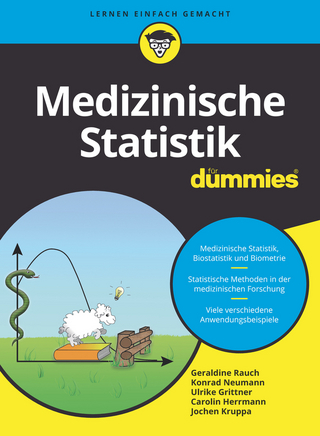
The Oxford Handbook of Cultural Neuroscience
Oxford University Press Inc (Verlag)
978-0-19-935737-6 (ISBN)
The Oxford Handbook of Cultural Neuroscience represents the first collection of scholarly contributions from the International Cultural Neuroscience Consortium (ICNC), an interdisciplinary group of scholars from epidemiology, anthropology, psychology, neuroscience, genetics, and psychiatry dedicated to advancing an understanding of culture and health using theory and methods from cultural neuroscience. The Handbook is intended to introduce future generations of scholars to foundations in cultural neuroscience, and to equip them to address the grand challenges in global mental health in the twenty-first century.
Joan Y. Chiao is Director of the International Cultural Neuroscience Consortium, an international, interdisciplinary organization dedicated to advancing theory and methods in cultural neuroscience to address issues in culture and health; Shu-Chen Li is a professor at Technische Universität Dresden in Germany, and holds the Chair for Lifespan Developmental Neuroscience in the Psychology Department. She is also an adjunct research scientist at the Max Planck Institute for Human Development in Berlin, Germany; Rebecca Seligman is a medical and psychological anthropologist at Northwestern University who focuses on transcultural psychiatry, or the study of mental health in cross-cultural perspective; Robert (Bob) Turner is Director Emeritus of the Neurophysics Department at the Max Planck Institute for Human Cognitive and Brain Sciences in Leipzig, Germany.
Introduction ; Part I. Conceptual and Methodological Issues in Cultural Neuroscience ; 1. Locating Culture in the Brain and in the World: From Social Categories to the Ecology of Mind ; Rebecca Seligman, Suparna Choudhury, and Laurence J. Kirmayer ; 2. Coding and Culture: Why Is There Enculturation of Brain? Cultural Neuroscience and Neurophilosophy ; George Northoff ; 3. Sensory Enculturation and Neuroanthropology: The Case of Human Echolocation ; Greg Downey ; 4. Health, Development, and the Culture-Ready Brain ; Charles Whitehead ; 5. Culture as a Response to Uncertainty: Foundations of Computational Cultural Neuroscience ; George I. Christopoulos and Phillipe N. Tobler ; Part II. Cultural Neuroscience of Emotion ; 6. Cultural Values Modulate Emotional Processing in Human Amygdala ; Tetsuya Iidaka and Tokiko Harada ; 7. Genes, Brain, and Culture Through a 5-HTT Lens ; Michio Nomura ; 8. Embodied Brains, Social Minds: Toward a Cultural Neuroscience of Social Emotion ; Mary Helen Immordino-Yang ; 9. Cultural Neuroscience in South Africa: Promises and Pitfalls ; Dan J. Stein Joan Y. Chiao and Jack van Honk ; Part III. Cultural Neuroscience of Cognition ; 10. Cross-Cultural Differences in Memory ; Angela Gutchess and Sarah Huff ; 11. When Culture Informs Neuroscience: Considerations for Community-Based Neurogenetics Research and Clinical Care in a First Nation Community With Early Onset Familial Alzheimer Disease ; Shaun Stevenson, Lindsey Bruce, Emily Dwosh, B. Lynn Beattie, and Judy Illes ; 12. Quantifying Culture: The Cultural Distance Hypothesis of Melodic Expectancy ; Steven M. Demorest and Steven J. Morrison ; Part IV. Cultural Neuroscience of Social Cognition ; 13. Cultural Neuroscience Studies of the Self-Reflection ; Shihui Han and Yina Ma ; 14. Identifying a Cultural Resource: Neural Mechanisms Underlying Familial Influence on Adolescent Risk Taking ; Eva H. Telzer, Andrew J. Fuligni, and Adriana Galvan ; 15. Cultural Differences in Emotional Expressions and Body Language ; Beatrice de Gelder and Elisabeth M.J. In't Veld ; Part V. Cultural Neuroscience of Intergroup Processes ; 16. How Next-Generation Neuroscience Technologies Can Facilitate Comparison Across Cultural Contexts and Species: Implications for Global Health ; Lasana T. Harris, Beatrice H. Capestany, and Jingzhi Tan ; 17. The Cultural Neuroscience of Intergroup Bias ; Bobby K. Cheon and Ying-yi Hong ; 18. Cultural Neuroscience of Pain and Empathy ; Joan Y. Chiao and Vani A. Mathur ; Part VI. Culture and Genetics ; 19. The Gene-Culture Interaction Framework and Implications for Health ; Joni Y. Sasaki, Jessica LeClair, Alexandria L. West, and Heejung S. Kim ; 20. Epigenetics of Social Behavior ; Jessica J. Connelly and James P. Morris ; 21. The Encultured Genome: Molecular Evidence for Recent Divergent Evolution in Human Neurotransmitter Genes ; Chuansheng Chen, Robert K. Moyzis, Xuemei Lei, Chunhui Chen, and Qi Dong ; Part VII. Linking Population Health Disparities and Cultural Neuroscience ; 22. The Role of Culture in Population Mental Health: Prevalence of Mental Disorders Among Asian and Asian American Populations ; Lawrence H. Yang and Jessica M. Benson ; 23. Culture, Genes, and Socioemotional Neurodevelopment: Searching for Clues to Common Mental Disorders ; Joanna Maselko ; Conclusion ; Index
| Reihe/Serie | Oxford Library of Psychology |
|---|---|
| Zusatzinfo | 77 illustrations |
| Verlagsort | New York |
| Sprache | englisch |
| Maße | 184 x 258 mm |
| Gewicht | 936 g |
| Themenwelt | Geisteswissenschaften ► Psychologie ► Allgemeine Psychologie |
| Geisteswissenschaften ► Psychologie ► Biopsychologie / Neurowissenschaften | |
| Geisteswissenschaften ► Psychologie ► Verhaltenstherapie | |
| Medizin / Pharmazie ► Medizinische Fachgebiete ► Psychiatrie / Psychotherapie | |
| Studium ► Querschnittsbereiche ► Epidemiologie / Med. Biometrie | |
| Naturwissenschaften ► Biologie ► Genetik / Molekularbiologie | |
| Naturwissenschaften ► Biologie ► Zoologie | |
| Sozialwissenschaften ► Soziologie | |
| ISBN-10 | 0-19-935737-4 / 0199357374 |
| ISBN-13 | 978-0-19-935737-6 / 9780199357376 |
| Zustand | Neuware |
| Haben Sie eine Frage zum Produkt? |
aus dem Bereich


